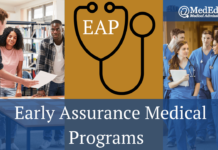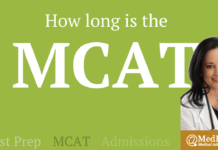AAMC Situational Judgement Test (SJT): What is it?
There are numerous factors that go into the decision about whether you get into medical school — not just MCAT scores and GPA, your medical school personal statement and application. Because most institutions in the US use a holistic admissions process, elements like your character, personality, and judgement also play a role.
Recently, the Association of American Medical Colleges (AAMC) created the Situational Judgment Test (SJT) in order to inform admissions committees about competencies successful medical professionals display further along in their careers. This is not meant to replace other critical application materials but rather augment the holistic admissions process.
Although the SJT has not yet been widely adopted, it is gaining traction as a tool that can help predict success.
What is the SJT?
The SJT allows admissions committees to evaluate “non-academic, pre-professional competencies that research shows meaningfully impact an individual’s performance during medical training and as practicing physicians,” according to the AAMC. The organization says the assessment is based on years of research.
The SJT assesses eight core competencies, including:
- Service orientation
- Social skills
- Cultural competence
- Teamwork
- Ethical responsibility to self and others
- Reliability and dependability
- Resilience and adaptability
- Capacity for improvement
According to experts, these competencies are key predictors of medical school success.
Notably, the test requires no knowledge of medical or scientific concepts. Instead, it’s meant to evaluate your professionalism and soft skills.
How does the test work?
During the online test, you will be presented with several hypothetical scenarios. Your responses to these scenarios offer insight into your ability to effectively deal with these cases and the professionalism you display when grappling with challenging cases in real-world settings.
After each scenario, you’ll see a list of actions you could take in response. You will rate each action in terms of effectiveness on a scale from 1-4, with 1 indicating very ineffective and 4 meaning very effective. There are 30 scenarios.
The exam time is 75 minutes, and the entire test time is between 90 and 105 minutes.
How is the SJT scored?
Scores range from 1-9, with 9 being the highest. Your responses are compared to those of medical educators, and you are graded based on how well they correlate. You may receive full or partial credit for each response.
In 2021, a score of 5 ranks students in the 55th percentile. (See the full percentile rankings.)
Which schools participate in the AAMC SJT?
The following schools recommend or require the SJT:
| Institution | Location | Required/Recommend in the 2022 Admissions Cycle |
| Geisinger Commonwealth School of Medicine | Scranton, PA | Strongly Recommended |
| Morehouse School of Medicine | Atlanta, GA | Required |
| University of Alabama – Birmingham School of Medicine | Burmingham, AL | Required (Regular MD program only) |
| University of Minnesota School of Medicine – Twin Cities campus | Minneapolis, MN | Strongly Recommended |
| University of California Davis School of Medicine | Davis, CA | Strongly Recommended |
| Des Moines University Medicine and Health Sciences | Des Moines, IA | Strongly Recommended |
How to prepare
The best way to prepare for the SJT is to familiarize yourself with the test structure, the types of questions you’ll find, and the system for evaluating responses. The AAMC offers several resources to help you, including:
- The AAMC SJT Sample
- The 2021 AAMC SJT: Examinee Preparation Guide
- The 2021 AAMC SJT Practice Exam Booklet
- Webinars on how to prepare
These resources will offer plenty of practice questions, advice for taking the test, and an overview of information you should know. Make sure you prepare your materials prior to test day, too (including laying out anything you need to bring to the test and verifying your account).
Remember that while the SJT is an important evaluation tool for a handful of medical schools, it’s not the only metric admissions committees use to evaluate you. There are several factors they take into account, so don’t worry too much about this single assessment.
That’s not to say you shouldn’t prepare — as much as possible, you should spend ample time reviewing practice questions and reading up on the exam. But because this is a test of your judgment and professionalism, you can’t prepare for this as much as you can the MCAT. And that’s okay! If you take the time to review the exam, procedures, and practice materials, you’ll be well-equipped to tackle it. Keep in mind that the result of this “test” will neither make or break your candidacy; it is used to corroborate information from other parts of your application.








